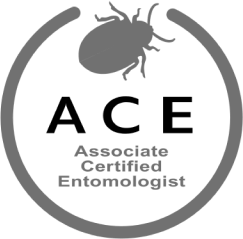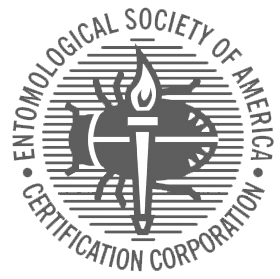Wasp Exterminators in Salt Lake City, UT
According to the American College of Allergy, Asthma, and Immunology, over two million Americans are allergic to stinging insects such as bees and wasps, and over five hundred thousand people visit hospital emergency rooms every year in the United States because of stings. That is why we take a proactive and scientific approach to controlling stinging insects.
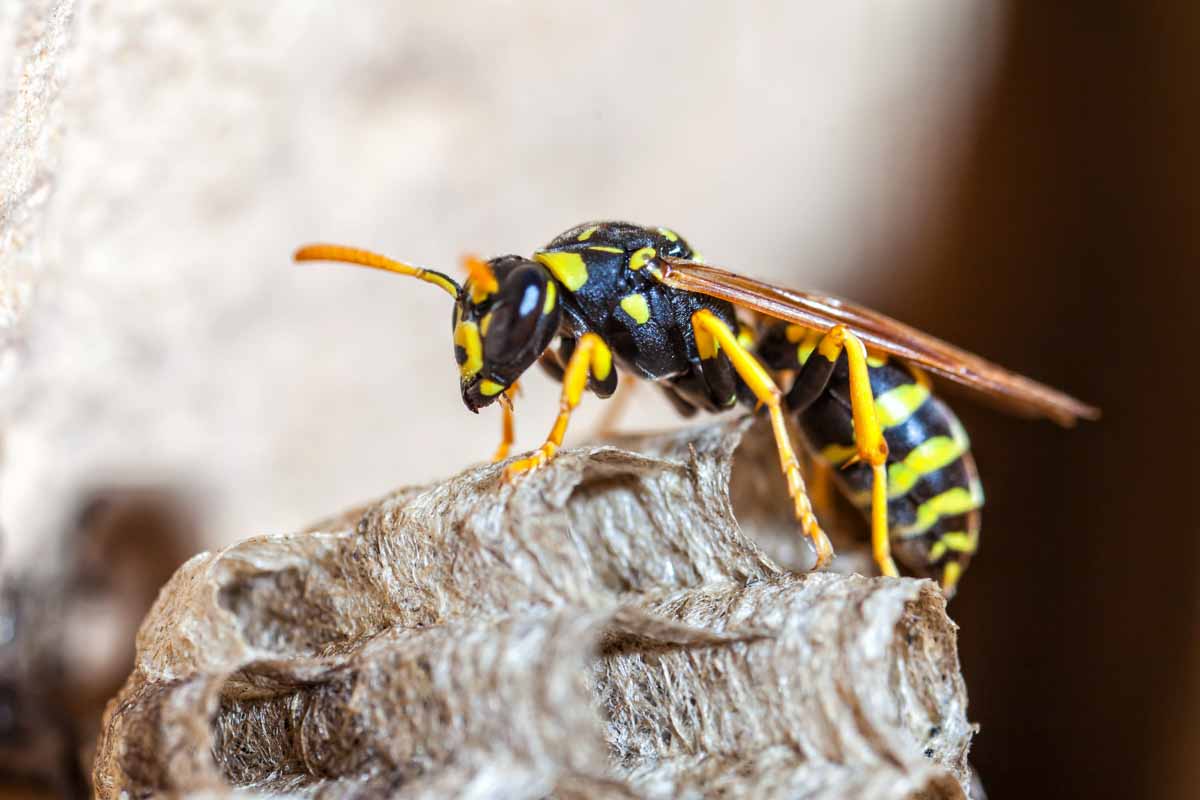
Paper Wasp
Paper wasps are longer and more slender than yellowjackets and their abdomen gradually slopes at the anterior end. They have an open, umbrella shaped nest with all the wasps exposed.
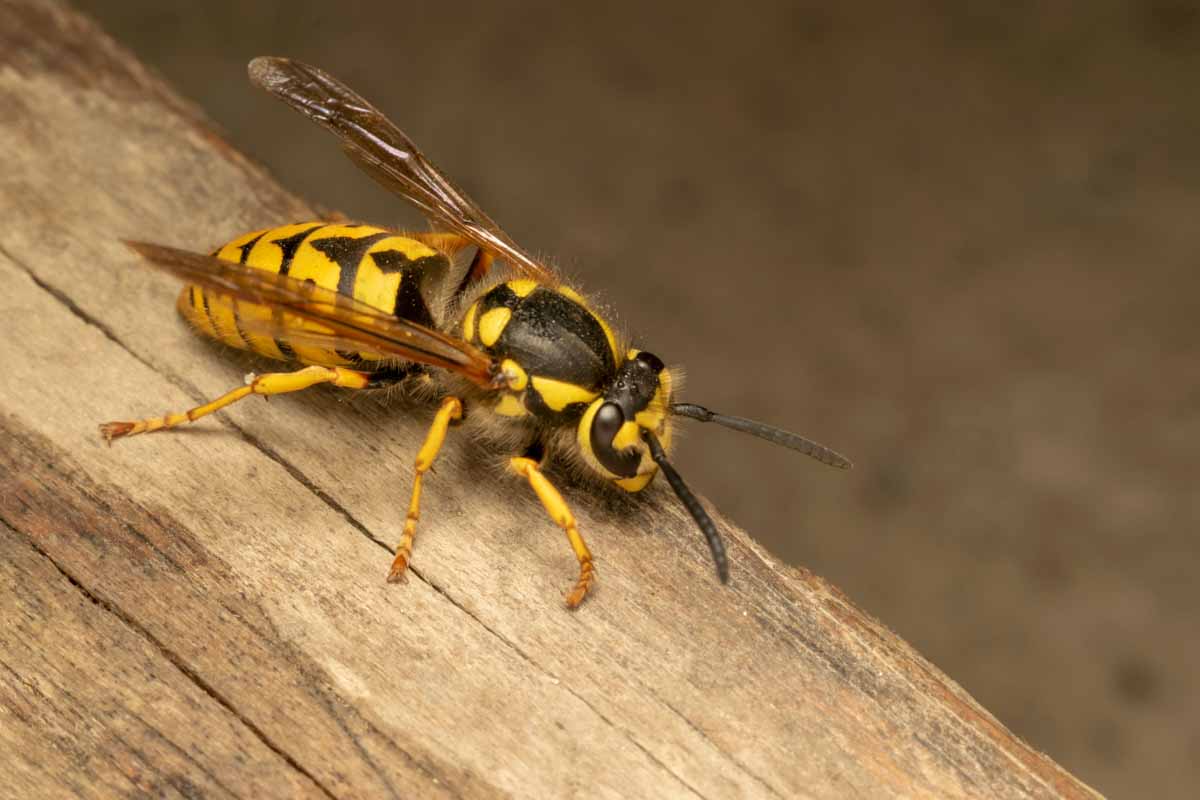
Western Yellowjacket
The western yellowjacket is similar in appearance to the paper wasp, except for its abdomen is blunt on the anterior side. Their nests can be found in old rodent burrows, holes, or structural voids.
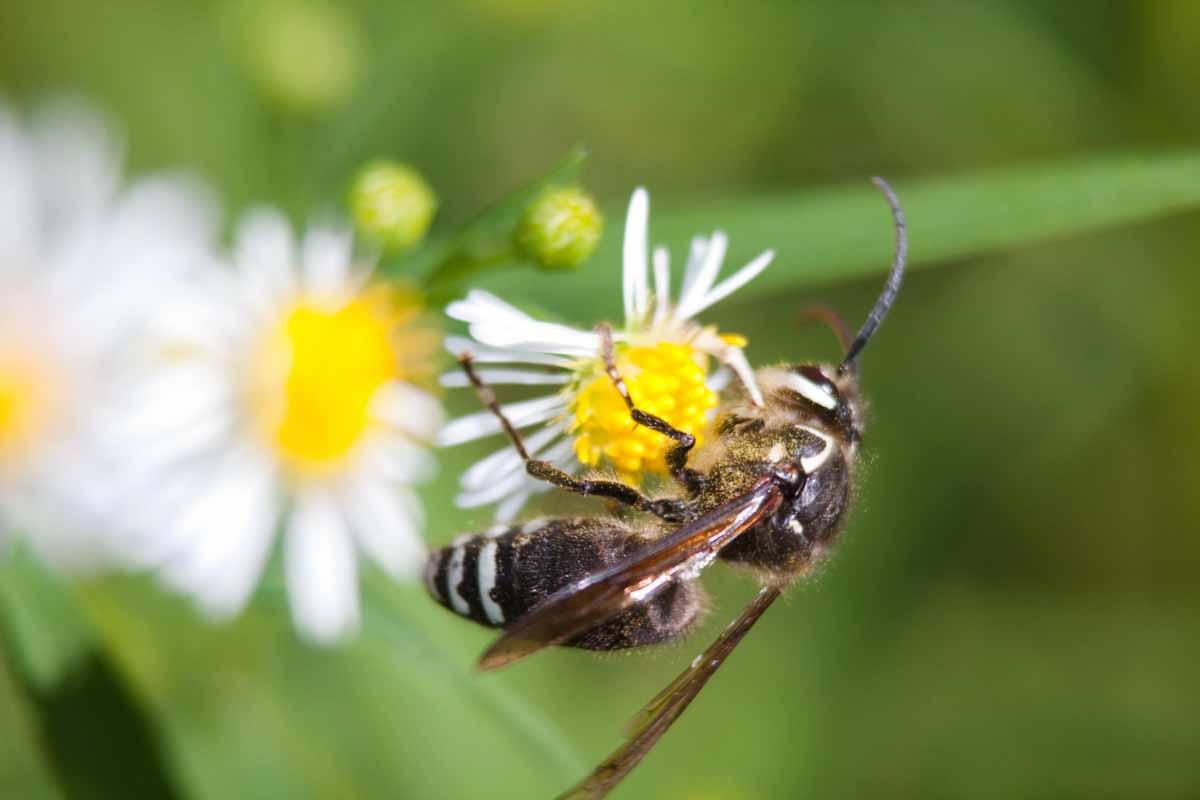
Baldfaced Hornet
Baldfaced hornets are black with yellowish to white coloring in their face. Their nests can be found on building eaves, in plants, or in trees.
Focused approach to wasp control
Wasps and other stinging insects are a huge pain.
Thorn can help rid your home or business of wasps and stinging insects.
Contact UsWe fight back when it comes to stinging insects.
If you have a staining insect problem in or around your home or business, the first step in identifying it. Read more about common stinging insects in Salt Lake City in our blog post.
Wasp Control & Removal in Salt Lake City, UT
While wasps won’t actively seek out people to sting them, wasp stings still result in hundreds of thousands of hospital visits every year. Wasps sting when they feel threatened or when their nests are threatened. Some types of wasps have hidden nests that are easy to overlook and stumble upon. For Salt Lake City wasp control, it is important to first identify what kind of wasps you’re dealing with because it will influence the type of treatment plan needed.
While wasp exterminators in Salt Lake City are trained to deal with wasp nests and can seal off wasp entry points, the best treatment for wasps is prevention. Thorn Pest Solutions Salt Lake City will identify food sources and environments enticing to wasps and advise you on how to prevent wasps from nesting near your home or business.
Thorn’s Wasp Removal Process:
1. Inspect the property and surrounding areas
2. Identify the nesting spots
3. Identify food sources including honeydew producing insects and dumpsters or trash cans
4. Assess the situation and create a treatment strategy dependent on the property and stinging insect species.
5. Perform the work
6. Create strategy for addressing food attractions
7. Remove nest when possible or prudent (sometimes nests need to be left for a short period of time to get results)
8. Follow-up to make sure we are getting the desired results
 Stinging Insect Infestation
Stinging Insect Infestation
It’s common to fear stinging insects.
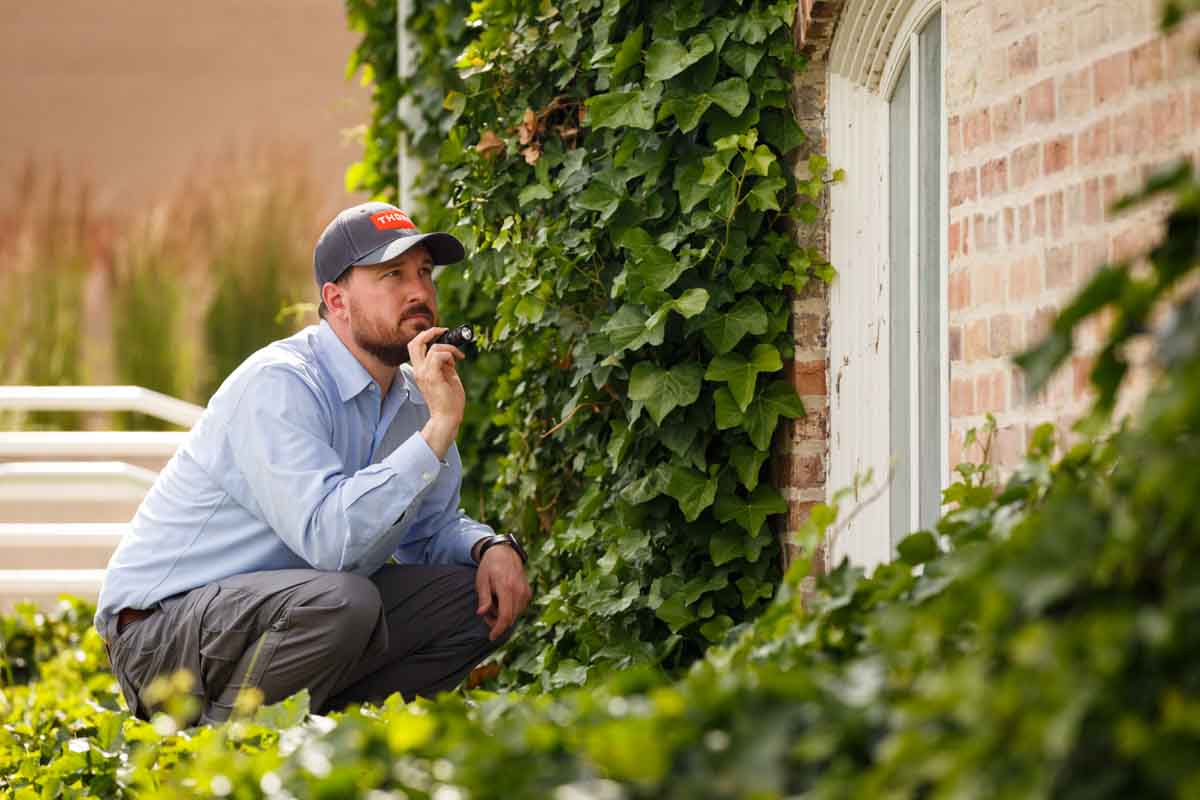
Many stinging insects are important pollinators and some rarely sting at all. Aggressive stingers can be dangerous when around your home, school, or work building.
Read more about these specific insects in our pest library or in our blog.
Benefits of Thorn’s Wasp Solutions:
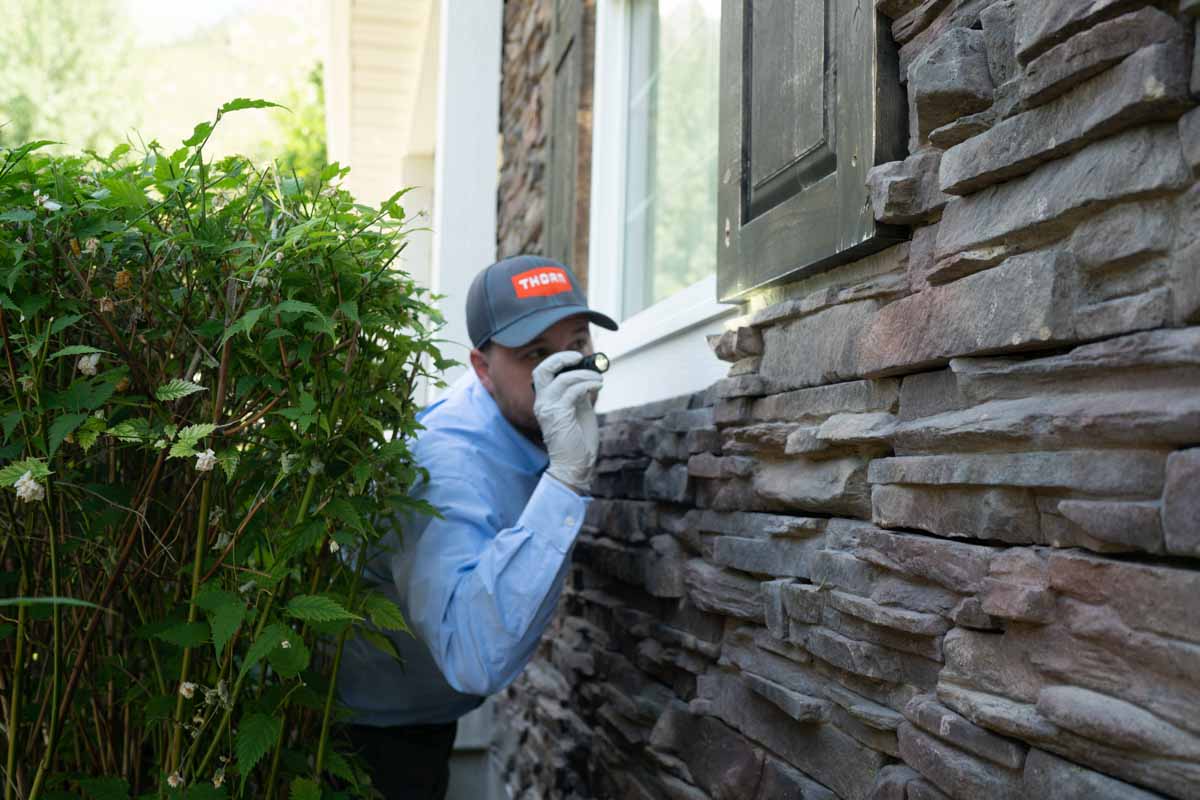
Protect your students, guests, and family
Season long warranties against wasp nesting
Proactive approach gets much better results vs a reactive approach
Tools to get results wherever the pests are nesting including inside of wall voids
Knowledgeable professionals that can identify pest attractants that can be eliminated or minimized
Let's get rid of those pests.
Call today:

Thorough Inspection
A thorough inspection is the first thing Thorn professionals will do when treating for wasps and stinging insects. We need to find all the nesting spots around the home or business and the property surrounding it.

Food Sources
We need to identify what food sources the insect is interested in. Some like honeydew produced by aphids, while others prefer dumpsters or trash cans.

Identify the Species
Correct identification of the species is an important first step when controlling wasps and stinging insects. Identifying the species will help direct our treatment process.
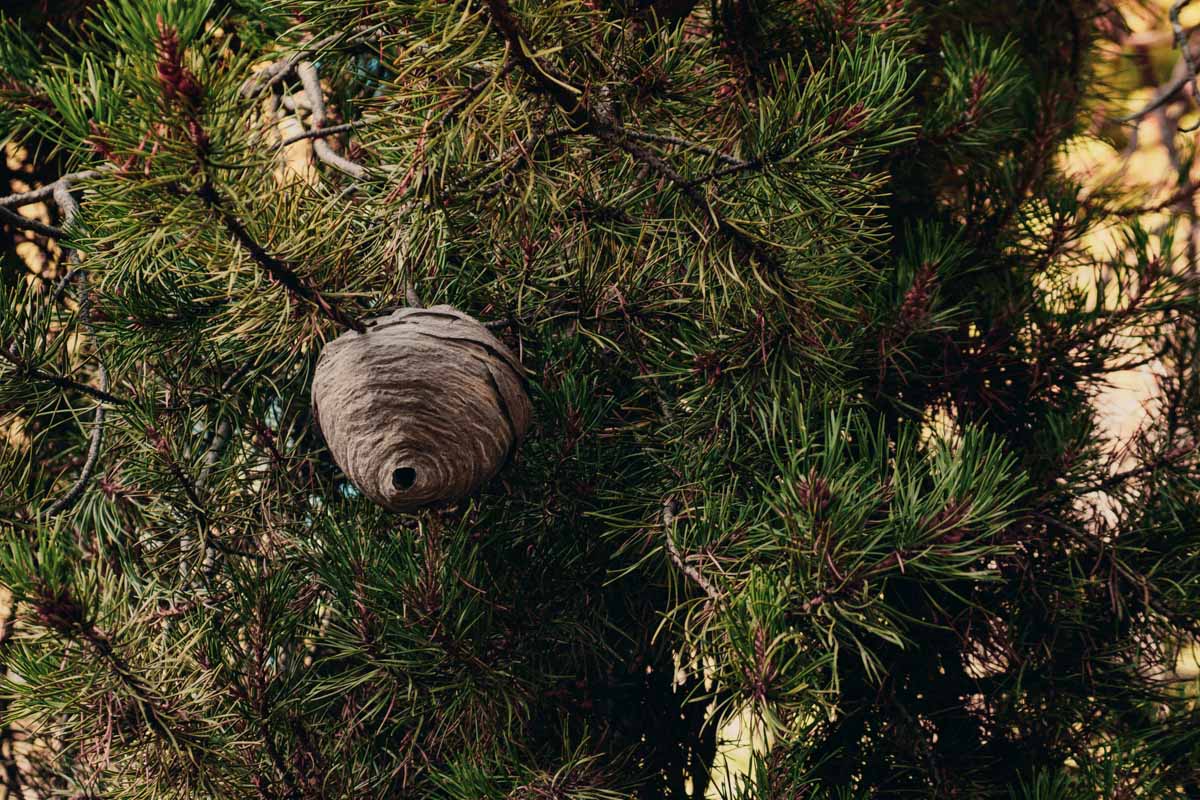
Remove the Nest
Thorn will remove the wasps nest when possible. Sometimes it does need to be left alone for a short time in order to get the best results.
Client
Testimonials
Frequently Asked Questions
Getting rid of wasps can take several steps, but it is possible. Wasp pest control starts with audits and consultations with a knowledgeable company, like Thorn. Our teams recommend utilizing wasp traps and eliminating gaps and holes that wasps can enter.
To prevent reoccurring issues, it’s also best to apply preventive treatments in the spring, and anytime you observe that nests are being built in the area.
Regular preventive treatments and traps are the best way to keep wasps away from a building. If you want to keep foraging wasps away while eating outside, you might consider placing a small plate of whatever you’re serving out in the yard away from the dining area about 15 minutes before dining.
A food distraction strategy like this will attract the wasps away from your table and to the meal that you left for them, making it less likely that they’ll buzz around you while dining outdoors.
Wasps are flying insects, and there isn’t usually a permanent solution to prevent them from nesting and occupying around your property or on your building. If wasps are entering through a hole in the wall, it can be permanently sealed, but preventative treatments are usually needed to keep paper wasps from building nests on the undersides of eaves.
Proactively monitoring and preventing issues early is better than having to reactively treat wasp infestations. The same strategy can be said for many pests native to Utah.
Hanging wasp nest decoys and natural sprays are often used to help deter wasps from building nests close to buildings. Other lures and traps are also effective ways to control wasp infestations. The team at Thorn would be happy to make recommendations for controlling wasp control around your commercial business or home in Utah.
Our wasp control services are priced from $129. Thorn also offers Utah residents and businesses ongoing preventative programs starting at $32 per month. Contact us today to get started.
Wasps can be difficult to control.
Thorn can help.
Don’t let Wasps disrupt your home or business. Fill out the form below to get in touch with us today.
Your business needs Thorn.

How Thorn Can Help
Pests can be difficult to control, but that’s what we are here for. We create a strategic plan to gain control of your problem and make sure we get results.
Thorn's Approach
We take a scientific approach to pest control. We start with an inspection and assessment to help us identify the pest, locate where they are, and create a specific plan for your property. Every home and business is different and requires a unique strategy.
 Additional Services
Additional Services
 Hear From Our Customers
Hear From Our Customers
